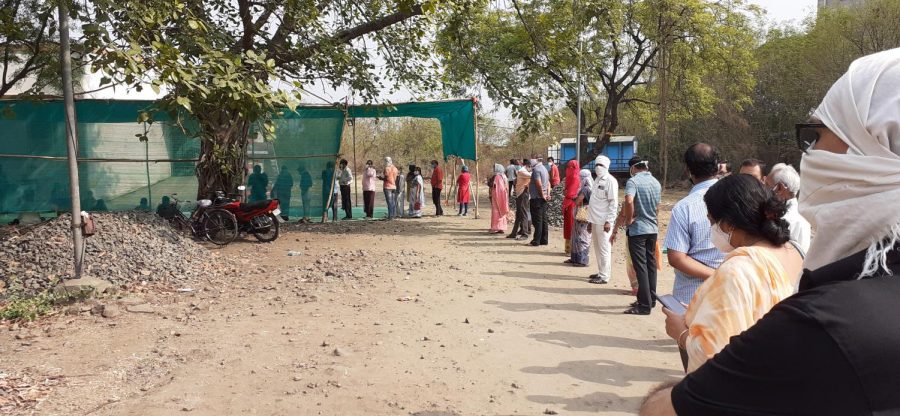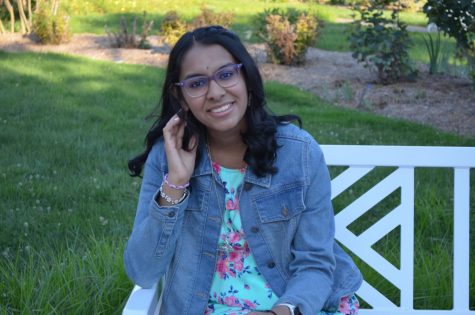The Ganges River in India lies silently as the ashes from COVID-19 victims float within it. Overwhelming smoke fills the air as hundreds of newly deceased corpses begin to burn. The entirety of India stares in shock as the second wave of COVID-19 descends upon the country.
India has seen a huge spike in COVID-19 cases the past few weeks, and many people living in different parts of the world feel helpless as their loved ones struggle from afar.
Though vaccines are being distributed throughout India, the overwhelming majority of citizens have yet to be vaccinated due to shortages. While Indian politicians initially claimed victory against the virus, COVID-19 has dominated the subcontinent for the past couple of weeks; India has seen itself go into another lockdown.
The situation in India has become serious as many countries are placing travel bans to and from the country. Indians living internationally are seeing their family members and loved ones struggle, but are unable to do anything to help. Many have said their final goodbyes from thousands of miles away and watched funerals through video calls.
Senior Ani Pradeep has family in India and finds the conditions to be very disheartening. “The feeling of helplessness has definitely made my family and I very sad. Having lived in India for five years, we are some of the proudest Indians and to see our country in such a state is heartbreaking,” he said.
Due to a lack of oxygen tanks, many Indians are left untreated as hospitals are overfilled with patients. “Personally, my great aunt has been hospitalized and it is really hard to get oxygen because of their shortage,” Pradeep commented.
But Pradeep is just one of many students with families affected by the second wave.
Like any typical high school junior, Jessica Singh is working hard on the assignments and studying that comes with the end of a semester. But her life comes with the added worry of distant family in unsafe places. “It’s difficult when you’re far from home and can’t really do anything to help out. Every phone call from India is always a scary one because you don’t know what can happen,” she reflected.
Both Singh and Pradeep have busy lives, but with this pandemic taking over India, they have added stress. They constantly have to worry about every family member and friend living in India. This is the case for most Indian students in the PV school district.
Putting an end to the pandemic in India is very difficult due to its dense population. Once one person gets it, it may spread to their entire street.
With the new variant, B.1.617.2, it makes it much more difficult to stop the spread of COVID-19 in India since there has not been enough research done on it. Scientists still believe that the vaccines protect from the new variant, but with the lack of research, experts believe it could spread more easily and have some resistance to the vaccine.
Furthermore, those who have received their first dose of Covishield, India’s version of the vaccine, have not been able to get their second dose due to a lack of vaccines. With the new variants, many are rushing to get their first dose, but since there are no separate lines for the first and second doses, people waiting for the second are having to push back their appointments. This causes an issue because vaccine companies say that the second dose should not be administered more than eight weeks after the first.
Additionally, with high poverty rates, many people are not in good health conditions. Those who are in poverty need to go out to make a living: selling vegetables, cleaning people’s cars and houses or anything else that requires them to be face-to-face with other people.
Indians’ unique lifestyles and environment make it difficult for many to avoid catching the virus and its various strains. “My family in India is taking all measures to stay safe and at home. However, due to the poor air quality, it’s causing them to wear masks in their own homes,” Singh commented.
And that poor air quality is leading to higher mortality rates. “It’s really heartbreaking to see people dying across the globe. But it’s more heartbreaking when it’s your own loved ones,” she added.
While it may not be possible to support those who are struggling, there are ways to support those who have family still battling the worst of the pandemic. “People are becoming blind to the realities of other countries. For us, we are moving past the pandemic in a sense, but we are essentially not thinking about other countries’ current states,” said Singh.
Singh’s hope is for topics surrounding COVID-19 to become less divisive. “One can never know what the person next to them has experienced in terms of the pandemic, so as individuals we need to be sensitive to everyone’s opinion on such a complex topic. After all, our emotions can speak louder than our words,” concluded Singh.











Makayla • Nov 16, 2021 at 8:23 am
I just want to say this is extremely well written and informative. I knew India was struggling but not this much, and frankly I’m surprised. You’d think by know someone would’ve figured more out about Covid-19 and at least slow it down a bit.